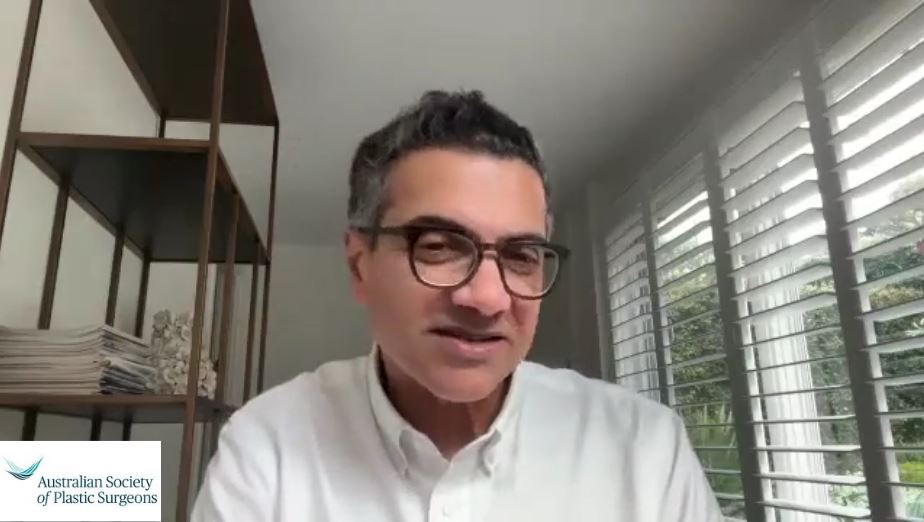Member Blog: Post-surgery bloating and swelling – is this normal? by Dr Nicholas Moncrieff

Some of the most common questions we receive from patients following breast and body surgery are, “why do I look and feel so bloated?” followed by a very distressed, “could I have I put on weight?!” It is always very reassuring for patients to hear that stomach discomfort, distention, bloating, and swelling are very common after surgery and that these symptoms are only temporary. Post-operative bloating and swelling usually peaks 2-3 days after surgery and most subsides by about 3 months.
Bloating and swelling occur after plastic surgery for a number of reasons:
- You aren’t as active as you usually are
During your recovery, your activity level will be significantly reduced. This decrease in movement can lead to fluid retention, increasing your swelling and bloating symptoms. Without being able to engage in the physical activity you usually would, you may even recognise a small weight gain. This is completely normal! Once you have been given the all-clear to resume gentle activity and exercise, you will find that your weight will return to its regular level if you are also being mindful of your diet.
- Your lymphatic system has been impacted
One of the main reasons swelling occurs in the body is that the lymphatic system has been disrupted during surgery. I always remind my patients that swelling is an important part of the recovery process and is essential for healing! The swollen areas contain a more concentrated amount of white blood cells and proteins that are needed to heal the surgical area.
- Intravenous (IV) fluid
During your operation, you will receive intravenous fluids to replenish your body’s fluids and balance your sodium levels. This IV fluid is often the culprit for bloating as your body attempts to regulates its fluid levels postoperatively.
- Functions of the gastrointestinal tract slow down
Not going to the toilet as regularly after surgery? Antibiotics, anaesthetic, pain relief, and other medications all tend to have a “slowing” effect on the gut. The means that patients often experience post-operative constipation, which of course can lead to more bloating and discomfort.
What can I do to help ease bloating and swelling?
Post-surgical bloating and swelling is mostly resolved with time. Although most bloating and swelling symptoms will clear by the 3-month mark, some patients find that swelling comes and goes for up to a year after surgery. Some ways you can help ease bloating, swelling and stomach discomfort are:
- Continuing to wear your surgical garments is a must. Yes, I know it can be uncomfortable, especially in the warmer months, but the compression makes a huge difference. If your garment is far too light or loose, please talk to your surgeon!
- Increase your fluid intake to flush any excess fluid from your body
- Ensure your post-surgical diet is rich in fibre to aid bowel movements
- Gentle stool softeners (such as Movicol sachets) may be utilised to help with post-surgery constipation
- Gentle mobilisation such as slow walking once you have received clearance to do so
- Cease stronger pain medication as soon as possible and replace with those that are gentler on the gut, such as paracetamol. Post-surgical bloating and swelling unfortunately cannot be improved with further prescription medication.
Although post-surgical bloating and swelling can be uncomfortable, rest assured that it is a completely normal, universal part of the recovery process and will subside over time.
Is there swelling I should be concerned about?
In a small number of cases, swelling can indicate an issue your surgeon may need to investigate. This can be a collection of fluid under the skin which is not being drained away using surgical drains. It may look like a bump only on one side and if it remains for longer than a day and seems to be getting bigger, then it is worth escalating.
It is also advised to contact your surgeon if you experience other symptoms such as increasing redness, pain or heat near a swollen area.
More questions?
Your Specialist Plastic Surgeon and their team can help you through your entire post-operative journey so please reach out to them if you do happen to have any questions or concerns.
Written by Dr Nicholas Moncrieff FRACS
Featured Stories

Member Blog with Dr Ellis Choy: What is a Deep Plane Facelift?
Who is the ideal candidate for a deep plane facelift?…
Continue reading Like
Like

